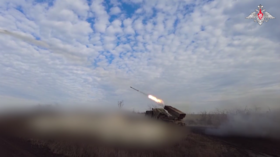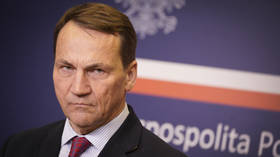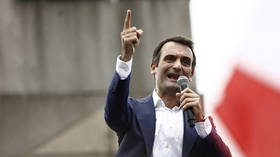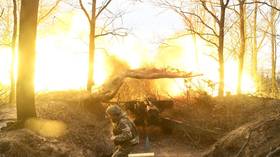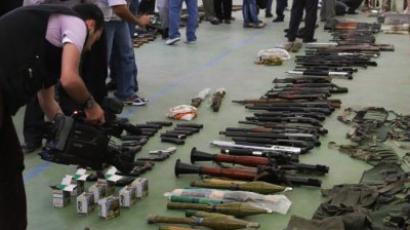Both sides in Syria fall victim to violence
The unrest engulfing Syria is descending into all-out conflict, with the growing violence claiming lives on both sides.
Eleven soldiers were killed by army defectors this week, shortly after the UN warned there is a high chance of opposition forces taking up arms if the crackdown on protesters continues."This is the office of the traitor," reads one of the messages on a wall inside one Damascus building. "Israel and the US were able to buy you with a thousand dollars," says another.Several opposition leaders, including Abdel Aziz Al-Khayer, work in this building. He had been a vocal critic of the Assad regime and had spent 14 years in jail – a very bad time, he recalls. Like many opposition members, Al-Khayer thinks there is really very little room for reconciliation under the current environment.“Tanks, armored vehicles, troops must be withdrawn to their barracks,” he tells RT. “No clear voices in the regime that I know of are listening to people's demands, and no one of them is providing political solutions. They are only using force to treat the situation.”He insists peaceful protestors were forced to respond to attacks by security forces, but he acknowledges that now, it is not simply black and white. Responsibility for the violence goes both ways.“Now we have not only the army and the intelligence services killing civilians, but we have some civilians killing soldiers,” Abdel Aziz Al-Khayer went on to explain.Yehya's son was one of the first soldiers killed since protests began in the country. This happened in Daraa on March 23.“All foreign media acknowledge that too many of the army and national guards have lost their lives. So how can some people say that armed groups don't exist?” says Yehya Murhej, the father of the killed soldier. “Who kidnaps these civilians and army members like my son? How could army members kill other army members? This is impossible! The media that says that is plainly lying.”And therein lies the problem. Ordinary Syrians are confused about what is going on.“Information is taken by each side and used to defend their position,” one man tells RT. “So if you hear only arguments from one side, you'll likely believe them.”Despite the atmosphere of confusion and misinformation, the push for reforms continues.“What's hindering the reforms, this is another question. Whenever a new legislation is made, then we see an escalation of the security situation in Syria and the killing by the gangs,” says Faysal Mekdad, Syria’s deputy foreign minister. “But we cannot absolutely put the blame on the government as some are trying to propagate.”Voices from both sides are calling for dialogue. Syrians themselves agree that if this crisis is to be resolved, the foundations of trust must first be laid down. But with each threat or death, Syria risks polarizing an already-widening political divide.


